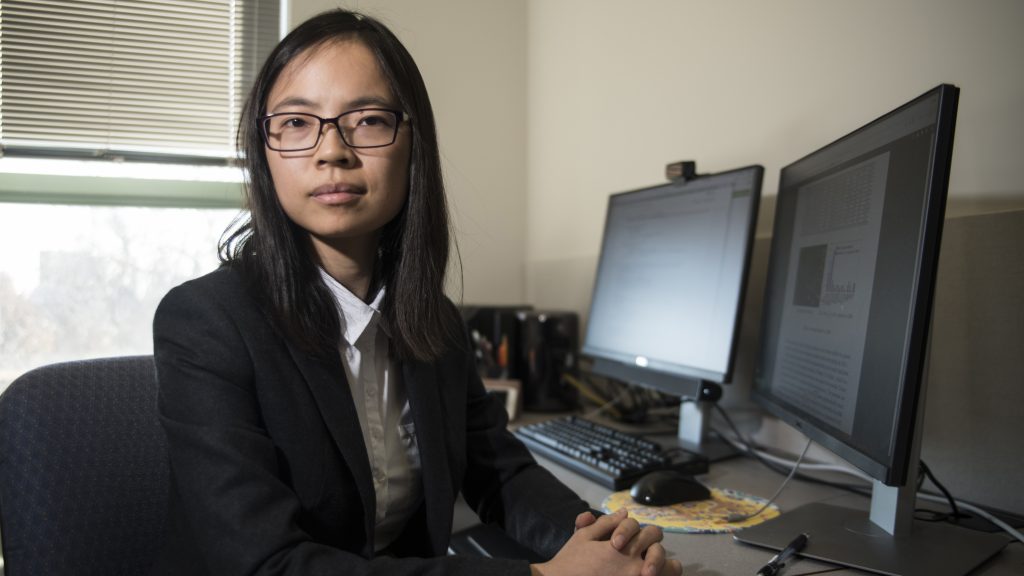UI Assistant Professor Tong Wang works to develop algorithms that can increase public safety by anticipating criminal behavior patterns.
By Madison Purvis and Sarah Watson
[email protected]
Although it may sound like science fiction, software that predicts human behavior may be around the corner.
University of Iowa Assistant Professor of management sciences Tong Wang is developing algorithms in order to predict human behavior, specifically behavior related to crime.
Wang, a faculty member in the Tippie College of Business, said her main goal in the project is to make algorithms that anyone can interpret and understand.
“Many state-of-the-art algorithms are black-box models,” Wang said. “While they may achieve high predictive performances, humans are unable to understand the decision processes. This becomes a problem in many domains in which humans are the decision-makers, such as medical diagnosis, judiciaries, etc.”
Wang has worked on the research since she was a Ph.D. student at MIT, where she worked closely with the Cambridge police. The research has been in the works for five to six years.
The algorithms Wang has worked on have been used in a multitude of different projects, including one that took place in the hospital regarding sleep apnea, and projects dealing with crime.
The Cambridge police still work closely with Wang in her research in both providing expertise and using the algorithms. She is using approximately 20 years’ worth of data from the department.
RELATED: New research finds possible correlation between drug addiction, child neglect
“A lot of the software being marketed today is like, ‘Give us a few data elements, and we’ll predict where crime is going to happen,’ ” Cambridge police Lt. Dan Wagner said. “I think it’s important to understand how the models works so you can understand any potential for bias or for errors.”
The crime-data analyst said the department used an algorithm to identify patterns in house break-ins, as well as using technology to analyze evidence.
“We process fingerprints from crime scenes; the computers will produce a list of potential matches but doesn’t point the finger at which matches,” Wagner said. “A forensic-crime-scene expert then reviews a list of, say, 20 possible matches and says this one is definitely a match.”
Tippie doctoral student Yunyi Li has now become involved in Wang’s work. The opportunity came when she took Wang’s Data Mining class, which, she said, sparked her passion in the data-analysis field. After asking Wang about opportunities in the field, Wang introduced the crime-prediction research to her.
Li said in an email to The Daily Iowan that in regard to crime, they are trying to “provide a trustworthy algorithm to predict the next crime location and time pattern, so police officers will distribute their power according to the prediction.”
Ideally, this will impede people from committing crime. If this happens repeatedly, officials hope that the people will give up committing crimes.
“[We hope] this brings a new era for police officer’s work manner and a better society without crimes,” Li said.
“Her algorithms for crime-series detection could be useful for studying crime and finding patterns of crime that would ordinarily go unnoticed,” former colleague Cynthia Rudin said. “It won’t tell you who the criminal is, it just tells you when there’s a pattern. It automates what the police do.”
Rudin said the pair are working on a project to determine causal inference. They are trying to determine if factors such as race may cause convicted criminals to become repeat offenders. So far as they can tell in their research, she said, it doesn’t.



